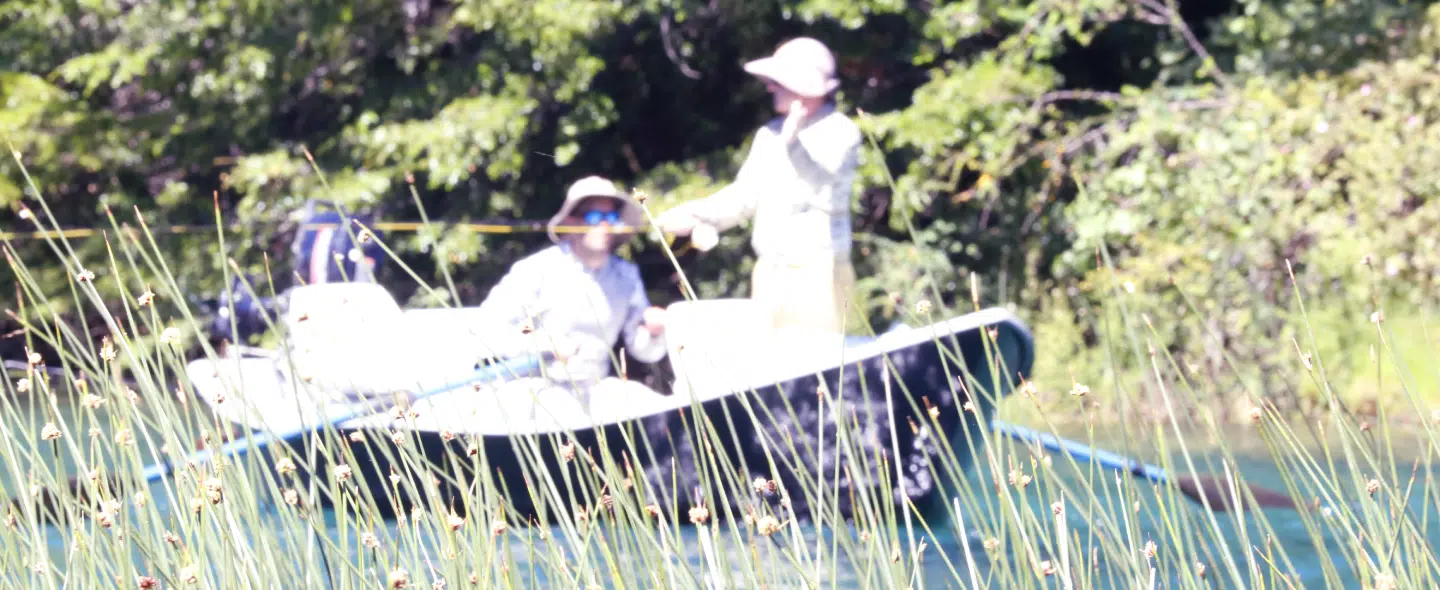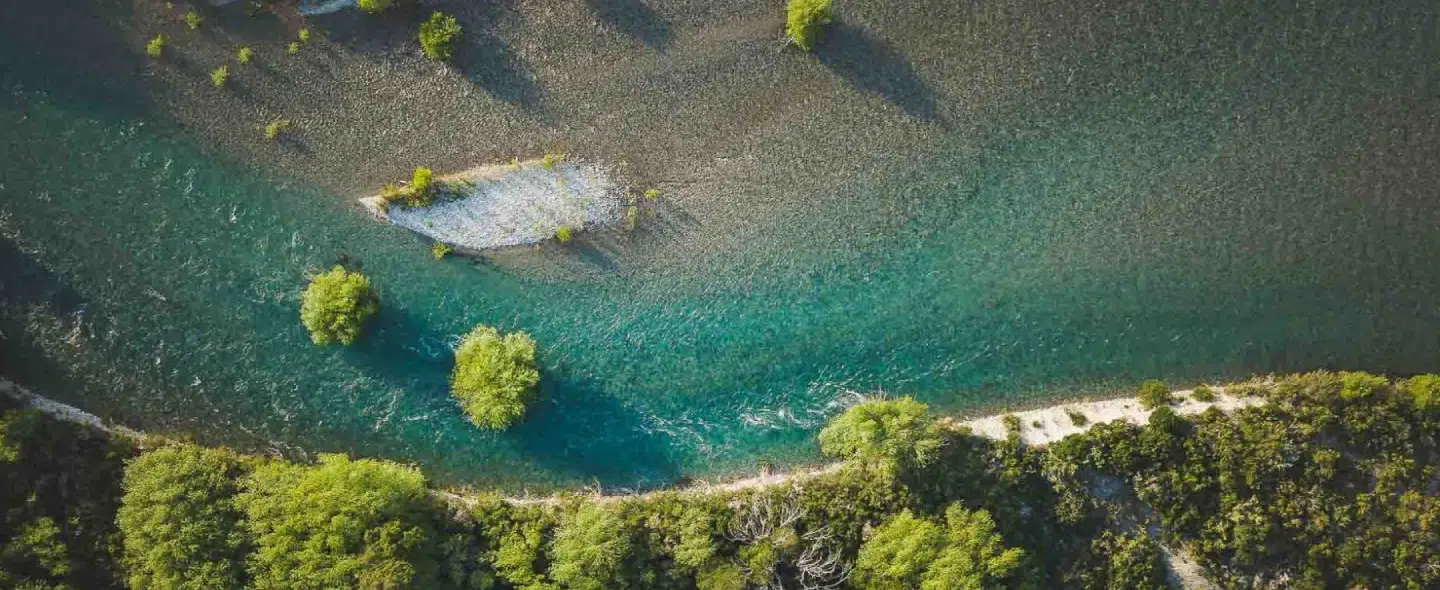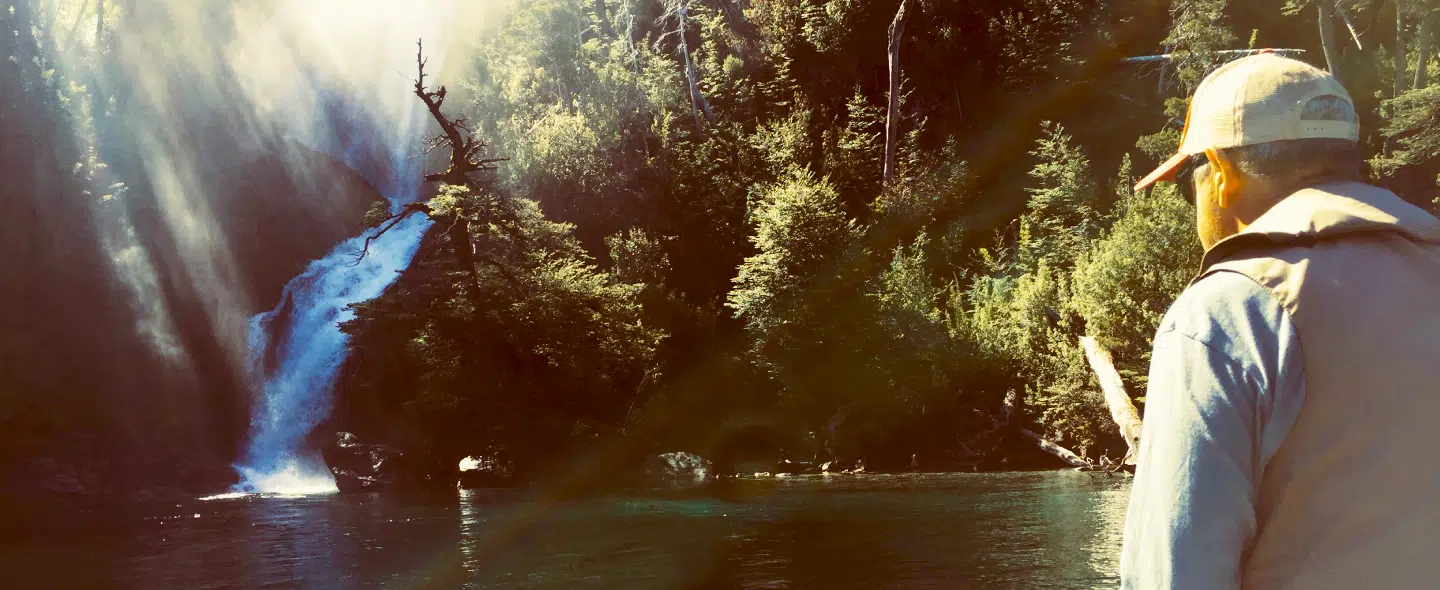Mascardi Lake
Nahuel Huapi National Park
November to April
National fishing permit
Tucked into the south of Nahuel Huapi National Park, Mascardi Lake is the largest body of water in the Manso Basin. It offers reliable fishing opportunities, specially during the first months of the season and can be fished using a wide range of techniques.
Landscape and Characteristics
The lake offers all kinds of structures, from shallow flat-like shores, to reed-fringed bays, and shores with steep rocks with logs and jams, ideal habitat for brown trout.
The lake’s setting is truly unique: on one side, anglers enjoy spectacular views of Mount Tronador, crowned year-round with snow and glaciers; on the other, the heart-shaped island in the middle of the lake, called Piuke Huapi. On good days, it’s possible to land catches well into the double digits. Like other waters in the basin, Hess also provides the rare opportunity for a Patagonian Grand Slam—catching brook, rainbow, and brown trout all in a single day.
In midsummer, the lake comes alive with the legendary Dragonfly Hatch. This is one of the most exhilarating times to fish here, as large trout rise aggressively to strike big foamy terrestrials like Fat Alberts, Chernobyl Ants, or lifelike dragonfly imitations. Throughout the season, techniques and gear are adapted to match conditions, making each outing as productive as it is memorable.
Map of Mascardi Lake
Below you’ll find a map showcasing the most renowned spots of the lake. Explore freely and don’t hesitate to ask questions—we love sharing stories about this extraordinary lake.
Fishing Mascardi Lake
November – Season Opening
At the start of the season, water levels usually are high and cold. Trout—especially rainbows—are fresh from spawning and feed aggressively. Streamers and nymphs on sinking lines are most effective, perfectly suited to the high-water conditions. The lake has many small to medium-sized tributaries of fresh snow water, offering excellent opportunities for fishing.
December / January – Crème de la Crème
Summer ushers in warmer weather, triggering a surge in aquatic life. By late December, the dragonfly hatch is in full swing, creating some of the most thrilling dry-fly fishing in the park. Big foam patterns provoke explosive takes, and early January continues much the same. These months also bring the best conditions for fishing camps: ideal weather paired with world-class angling.
Late January / February – Patience Pays Off
As water levels drop and temperatures rise, fishing becomes more technical. Anglers often shift to fast-sinking lines with smaller streamers, while evening caddis hatches still reward dry-fly enthusiasts. Precision and patience are essential for success during this period.
March / April – A Good Finish
With the arrival of autumn, conditions stabilize and fishing improves again. This versatile stretch allows all methods—dries, nymphs, and streamers—to shine, closing the season on a strong and satisfying note.




